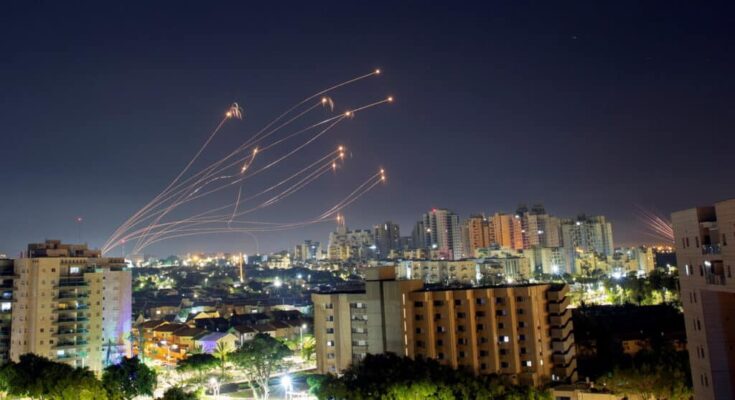
The possibility of a widespread war in the Middle East is gradually becoming more probable, particularly after the assassination of Hezbollah leader Hassan Nasrallah, the Israeli invasion of Lebanon, and the more than 200 rockets fired by Iran into Israel.
According to an article in The New York Times, the situation now is at its most critical for the region since the 1967 Arab-Israeli war known as the Six-Day War. It was the latest development that forced Iran to respond by launching missiles.
Hence, a conflict that at first seemed limited has now become a regional war with unpredictable consequences that could cause many problems for the international community.
The Middle East on a razor’s edge
For Israel, the conflict is now becoming a total war. According to a former Israeli ambassador to the US, “this war is a struggle for our national survival.” This statement reflects the prevailing sentiment in Tel Aviv in the wake of the military operations.
On the other hand, US strategy is to prevent Israel from attacking Iran’s nuclear facilities, such as Natanz and Isfahan, where Iran enriches uranium. This would lead to a wider escalation.
In the eye of the hurricane is Netanyahu who, against Biden’s advice, has made decisions that bring Israel into direct conflict with Hezbollah and Iran. All of these factors have created a climate of war.
At this point, a key question arises about Iran’s next move. Tehran may be waiting to see how Israel’s operations unfold in the coming weeks, especially as the US tries to contain the actions of the Israeli government.
Tensions between the two countries are at their peak, and any wrong move could spark a wider conflict involving other countries in the region.
Analysts warn that the current crisis could lead Iran to accelerate its nuclear program, seeing the acquisition of nuclear weapons as the only way to offset the military capabilities of Israel and the US.
At the same time, Iranian leadership will have to deal with internal pressures from the Islamic Revolutionary Guard Corps, which is pushing for a tougher line against Israel and the US.
Middle East: Why Iran attacked Israel
Apparently, Iran’s leadership succumbed to the pressure of the Revolutionary Guards, launching the attack on Israel as a show of strength after the latest events.
According to the Iranian authorities, the attack was a response to the assassination of Nasrallah and other attacks that killed senior Hezbollah and Hamas officials.
His assassination last week provoked a strong reaction within the Iranian government, with new President Massoud Pezekian publicly warning Israel not to misinterpret his country’s stance as weakness. Although Pezekian was reportedly in favor of restraint, he ultimately fully supported the leadership’s decision.
What do the analysts say about the Iranian attack?
Analysts had estimated that Iran would refrain from such a move to avoid being drawn into a full-scale military conflict with Israel and possibly the United States. However, Tehran’s aggressive decision underscores Iran’s desire to demonstrate that it will not remain inactive in the face of attacks against its allies even if this means a potential spilling over in the Middle East war.
Ali Vaez, director for Iran at the International Crisis Center, noted that the move was expected after the ongoing pressure within the Iranian government. “The decision to respond shows that Iran believes that the cost of not responding is higher than the risks of attacking Israel,” Vaez said, noting that the decision could prove dangerous.



